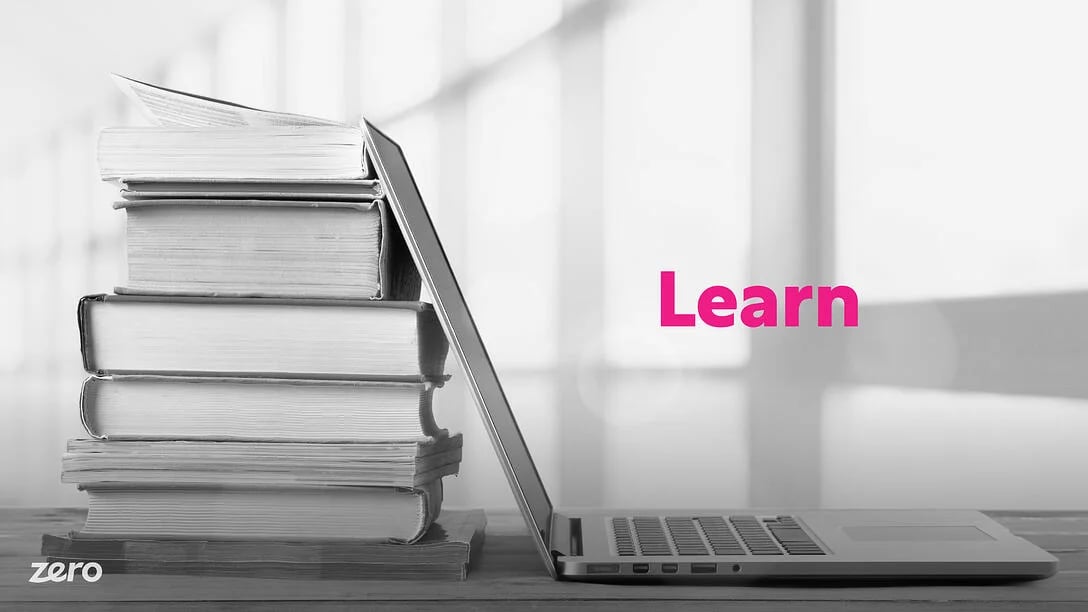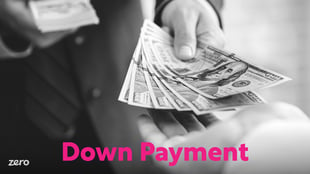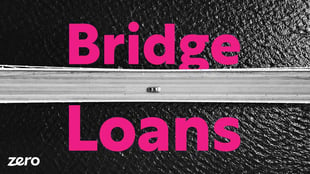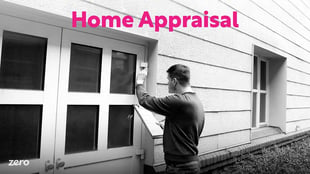How to Buy A House: A Beginner’s Guide

Purchasing real estate is not as simple as finding the right home, submitting an offer, and signing the closing paperwork; many more steps are involved. The home buying process can sometimes be lengthy, and there may be various obstacles one needs to navigate along the way. If you’re interested in hearing all the steps involved in how to buy a house, this guide is for you!
If you are a first-time home buyer, you may also find this blog useful!
How Long Does It Take to Buy a House?
One of the most common questions we receive is, how long does it take to buy a house? Unfortunately, there is no sure answer. Each home purchasing experience is different, and no two clients are the same. Variables such as your financial history, your home wishlist, and any issues discovered along the way will certainly influence how long it will take to purchase your home.
How Much Do You Need to Buy a House?
There are a lot of financing options available. Your financing will be contingent upon how much money you have available to place as a down payment. Veterans using a VA loan, or folks who qualify as a low to moderate income household and are purchasing a home in a rural area through the USDA loan program, can purchase a home with zero money down.
Many first time homebuyers choose to finance through the Federal Housing Administration, or FHA. The FHA has a minimum down payment amount of 3.5% of the total home value. For instance, a $200,000 home would require a down payment of at least $7,000, whereas a $400,000 home would require a down payment of at least $14,000. If you’re curious how to buy a house but you have a low credit score, explore an FHA loan. The credit score requirements are more lenient with these loans.
Individuals financing the purchase of their home through a conventional mortgage can also elect to put down a small down payment, but as a result, you may need to pay private mortgage insurance each month. Private mortgage insurance will increase your monthly mortgage payments.
Steps Towards Home Ownership
There are steps you can take along the way that will make the home purchasing experience more streamlined and less stressful for all parties involved.
Start Saving for A Downpayment
It’s wise to start saving for a down payment as early as possible. Even if you are eligible for a loan with zero money down, or 3.5 percent, you may still want to put additional money down at closing. Remember, the more money you put down on your home, the more equity you’ll have in your home, plus a lower monthly payment.
Determine What Your Spending Limit Is
Another step worth taking is to do a personal assessment of your finances. How much money would you be comfortable spending each month on a mortgage payment? Look at all of your bills, debt, and financial obligations. Will any debt be paid off soon, or will you carry that debt for many more years?
A good rule of thumb is to not have your mortgage payment exceed 25-30% of your annual income, but that is also entirely dependent on how much debt you have. If debt is draining your cash, you may not be able to afford a home that’s 25% of your annual income.
Get Preapproved for a Mortgage
Now that you have a better understanding of how much money you’d feel comfortable spending each month, it’s time to see how much money a bank would be willing to lend you. If the bank is willing to lend you $300,000 for a mortgage, you and your realtor can drill down your home search for homes that are within this price range.
Just because a bank pre approves you for a certain amount doesn’t mean you need to spend that much money. If you personally don’t want to exceed a $1,500/month mortgage payment, it doesn’t matter if a bank is willing to lend you money that would equate to a $2,200/month mortgage payment. Stay disciplined and only purchase a home that is within the price range you're comfortable with.
Hire a Good Real Estate Agent
Once you are preapproved for a mortgage, it’s time to find a great real estate agent . Ask friends or family members who they use, and if they had a pleasurable experience working with that realtor. A good real estate agent does more than just open the front door during your home tour. They educate you on the home, help identify anything you should be aware of, and will help negotiate the best price possible.
Shop Around for Your Home
You and your real estate agent should discuss what’s important before beginning your home search. You may want/need 4 bedrooms in your home and a large garage. Or, you may be more interested in having a large backyard with an outdoor entertainment space. Whatever is on your wishlist, the realtor can help find it for you.
Common requests, such as number of bedrooms, bathrooms, square feet and price can all be built into a custom home search that your realtor can set up for you. Keep in mind the duration of time you plan on spending in this home. If you’re thinking about starting a family, make sure you take the school district into consideration. This may require you to do your own research because realtors are bound by anti-steering rules.
Make an Offer
Once you find your ideal home, take the next step and make an offer! You and your realtor will discuss what your offer price should be. In a competitive market, you may not be able to submit a low offer. If the house has been idle on the market for a few months, start low and gradually increase if needed.
House Inspection
If the seller accepts your offer, you’ll likely want to get the house inspected by a professional. Although this typically costs a few hundred dollars, it’s essential. A professional home inspection will help identify issues that are wrong with the house, and can aid in negotiations. After inspection, you may also want an attorney to oversee the contract negotiations and ensure nothing is overlooked.
Read our blog that covers home purchase fees and costs here.
Order an Appraisal
Your lender may require an appraisal. This simply means a professional appraiser puts a value on your home. If the appraiser values the home for $250,000 and the seller is trying to sell the home for $300,000, that’s a problem.
However, if the appraiser values the home for $325,000, and the seller is asking $300,000 for the home, you’ll kick off your loan with positive equity in the home! The purpose of the appraisal is so the bank understands the fair market value of the home and their interest is properly secured.
Work With a Mortgage Company for a Loan
With the appraisal out of the way, it’s now time to finalize your loan with a mortgage company. There are many different mortgage options on the market, so be sure to evaluate all options to find the loan that's best suited for you.
If you have limited or impaired credit, or you don’t want to put down a large down payment, you might consider financing options offered by the FHA. You can purchase a home with a credit score as low as 580 and just a 3.5% down payment.
For qualifying individuals or families, the Department of Veteran Affairs, and the United States Department of Agriculture, offer financing options with no money down. Be sure to check with your lender to see if you qualify for any of these options.
Gather Paperwork & Close the Sale!
Much of the loan finalization process involves a great deal of paperwork. You will likely be required to provide bank statements, pay stubs, and tax returns. Ask your lender to provide you with a checklist of all the materials you’ll need and begin gathering the necessary paperwork to help move your closing process along. Once everything is gathered and submitted, you’ll receive your final approval if you meet underwriting guidelines, and you're clear to close on the home. Congratulations!
Our Mortgage Learning Center features blogs on a wide range of mortgage and refinancing topics.
Now You Know How to Buy a House!
There are certainly a lot of steps involved when it comes to purchasing a home. Everyone has their own circumstances and desires, which makes the buying experience unique to the individual.
Those looking to purchase a home with no money down will need to secure a loan that is backed by the federal government, such as a VA or USDA loan. Many first time home buyers that do not qualify for a VA or USDA loan, will choose to finance their home through the FHA. The FHA makes home ownership a more reachable goal for millions of Americans. You’ll be able to get a loan with a credit score as low as 580 and a down payment of 3.5%.
Working with the right realtor and mortgage broker will help streamline the process for you. These professionals are phenomenal resources, and will answer the many questions you’ll have throughout your purchasing experience!
Ready to Buy a House? Apply Now!
This page last updated: October 18, 2022
Read more on this topic below.

When you buy a house and start making mortgage payments, your payment consists of four different components, known...

If you have gone through the pre-approval process but need to take a deeper dive into how much house to buy,...

The vast majority of mortgage loans require you to put down a certain percentage of the selling price upfront....

Whether you’re a first-time buyer or you’ve purchased a home before, you’ve likely heard of a homeowner’s association....

There’s a lot of expenses to keep in mind when you’re thinking about buying a home. Between the price of the home, property taxes, your mortgage...

Conventional loans are mortgages offered by private lenders, banks, and institutions that are not backed by the government. Unlike FHA, USDA,...

Some homebuyers refuse to purchase a property if it is part of a property owner association. On the...

Research indicates that 58% of homeowners in HOA communities and single-family homes pay an average monthly fee...

Private mortgage insurance is something millions of homeowners pay for each year. However, this type of insurance does not protect

When you first set out to buy a home, it can feel like you’re taking an exam you forgot to study for. You have to make quick...

When looking to refinance or buy a house, the pre-qualified vs pre-approved mortgage debate can be...

It’s likely that your mortgage loan will be the largest loan you have during your lifetime. Mortgages are not a one size...

For many people, owning a home is part of the American dream. To make this dream a reality, most people will take out a...

Whenever you’re looking to buy a house, you’ll quickly realize there are a lot of fees associated with obtaining a mortgage....

A bridge loan is a short-term loan a borrower may use while a more long-term financing contract is finalized. Bridge...

A loan estimate is crucial to obtain when looking for a loan. This estimate not only gives you the details of a mortgage but also compares offers...

There are many moving parts and various people you’ll deal with throughout the homebuying process....

If you’re looking to buy a house, and do not have a mountain of cash saved up, you’ll need to consider getting a mortgage to help you finance this...

If you find a property that you’re highly interested in buying but are concerned that the seller might choose...

Buying a home? You’ll likely need to get it appraised before you receive the clear to close. If you’re wondering...

If you’re an active service member, a veteran, or the surviving spouse of a veteran, and you want to ...

There’s no doubt, COVID-19 changed the world in countless ways and took us all by surprise. From an...

Whenever you are borrowing money, whether it’s for a new mortgage, a refinance, credit card, or car loan, you’ll hear...

If you’re new to buying a home, you probably have quickly realized the overwhelming amount of options there...

If you’ve already gone through the lengthy process of writing offers, securing financing, and arranging inspections for your...

One of the most important steps to buying a home is deciding on a mortgage loan and deciding on a loan involves settling on a good...

First time home buyers are often surprised when they learn about all of the expenses that are associated with ...
